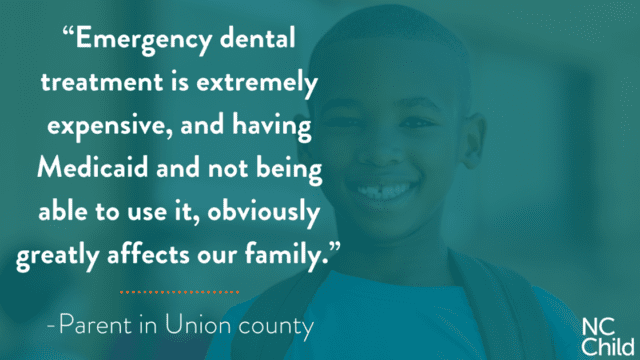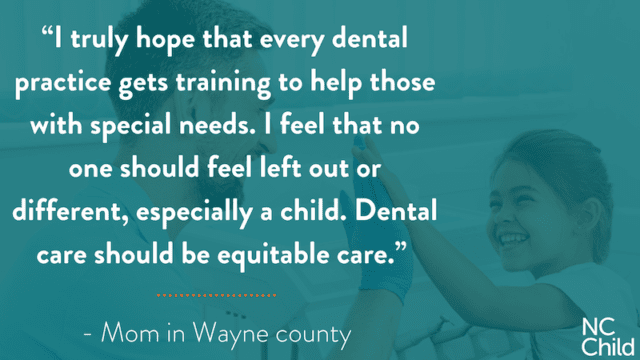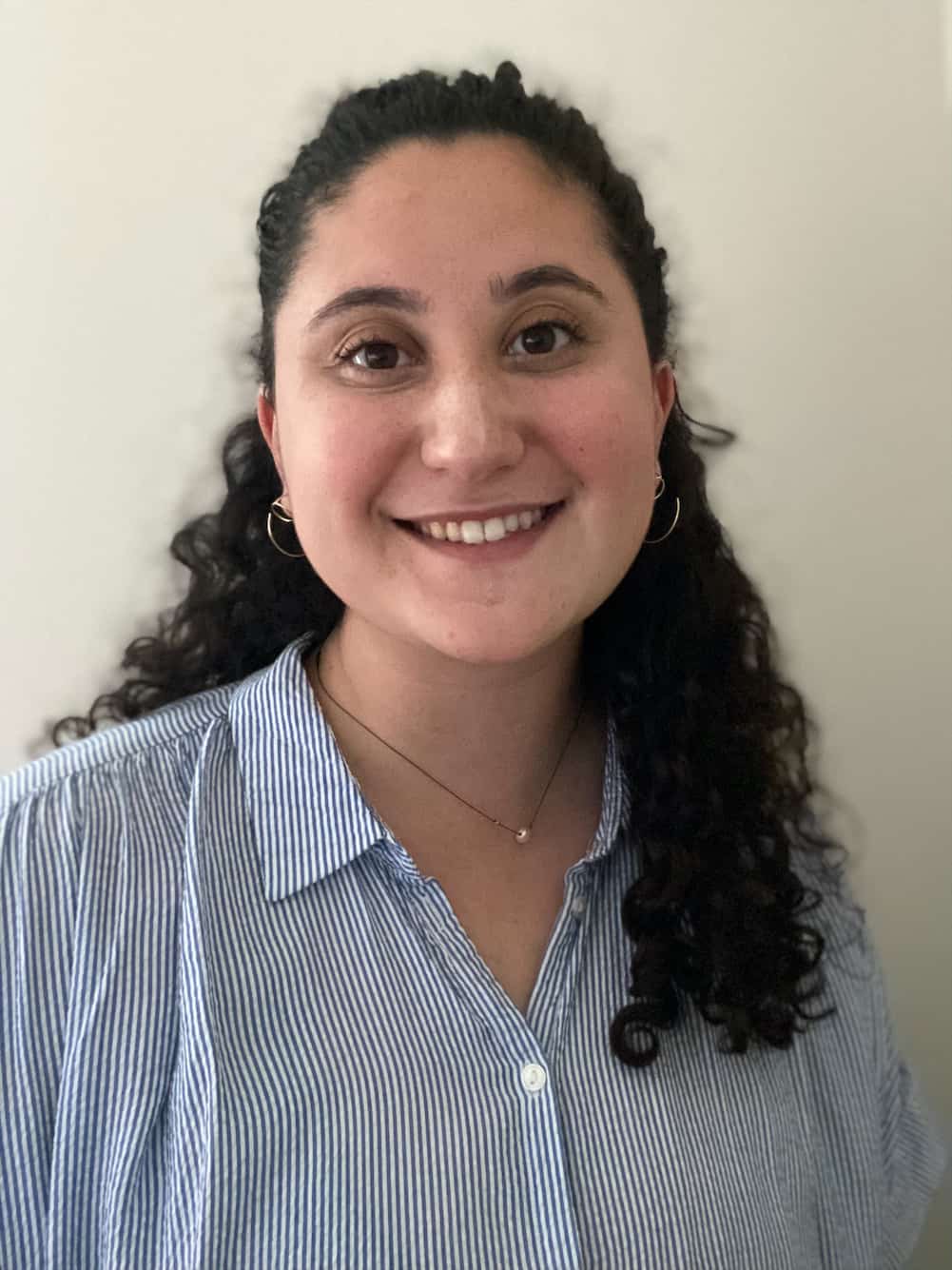Tooth decay is the leading childhood chronic disease in the US. A healthy mouth is such an important part of each person’s overall health. But getting the oral health care kids need can be a big challenge for many families – especially those who live in rural communities, and who get their health coverage through Medicaid.
As we work with partners to find solutions, there is one group of people we at NC Child most wanted to hear from: the families experiencing those barriers to oral health care. In 2021 NC Child collected stories from parents and caregivers across the state whose coverage comes from Medicaid. We heard from people in all regions of the state, with all kinds of backgrounds, with different families and jobs and lives, but through it all there were similar themes that came out of these stories.
Not enough providers
In North Carolina, only 15 percent of dentists practice in rural areas (Brian, 2021). Even when there are providers available, they frequently don’t accept Medicaid. As a result, caregivers described situations where they needed to find their child dental care, sometimes even emergency care, but they struggled to find providers who accept Medicaid. They found that the information online was frequently inaccurate or incomplete, or just hard to navigate. The caregivers were forced to spend excess time searching for providers, or just bit the bullet and saw out-of-network providers – taking a big financial hit.
Families that use Medicaid described experiencing challenges when it comes to payment. After submitting request for coverage for their care, some only received partial coverage for care they needed – creating a new cost burden. One family talked about how some necessary treatments were classified as “cosmetic” (braces for example) and therefore not covered – which affects overall long-term health.

Children with special health care needs
Families of children with special needs reported logistical as well as emotional challenges to getting care for their kids. Some families described rude or dismissive treatment from staff at dental offices. The families we interviewed often said that staff seemed ill-equipped to serve children who have sensory issues or other sensitivities.

Frustration and fear
These obstacles to oral health care take a toll. Inability to find consistent, affordable dental care affects people economically, physically, and emotionally. Time and money are wasted: spent driving long distances, visiting more than one provider, visiting non-Medicaid providers in emergency situations, and paying out of pocket for non-covered essential care.
People reported feeling frustration and fear over their inability to find coverage, from the stress of long wait times, and the stress of postponing needed care. Delaying treatment can have serious negative health effects – and can lead to more invasive and costly treatments in the long run.
Parents have solutions
When we asked parents what they wish they could change about Medicaid and oral health care, the answers were straightforward: they want more providers that accept Medicaid, especially in rural counties. They want online information to be accessible, easier to navigate, and up-to-date. And they want everyone, especially children with sensory issues, to feel heard, safe, and supported.
Take Action: Join us at Oral Health Day
The path to accessible care is long, but we’re walking it together. The North Carolina Oral Health Collaborative’s upcoming Oral Health Day on June 22-23 focuses on inequities and solution development. NC Child staff and members of our Parent Advisory Council will be taking part – hope to see you there!


